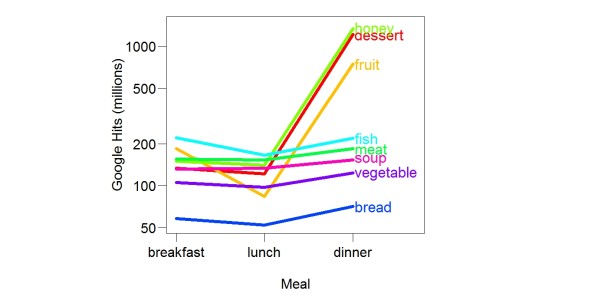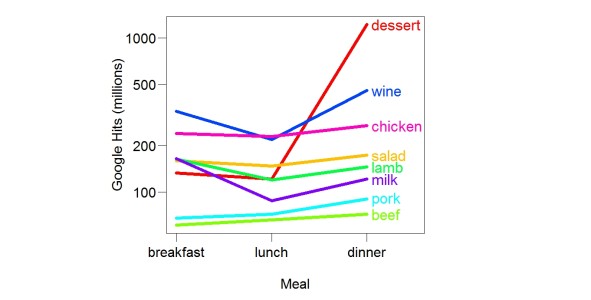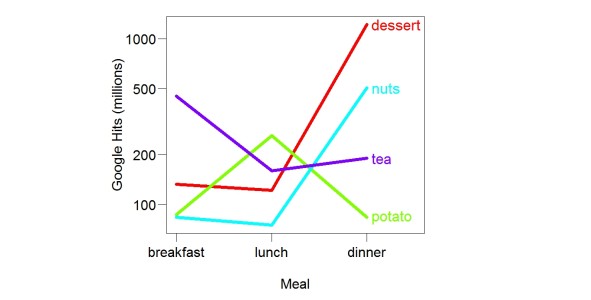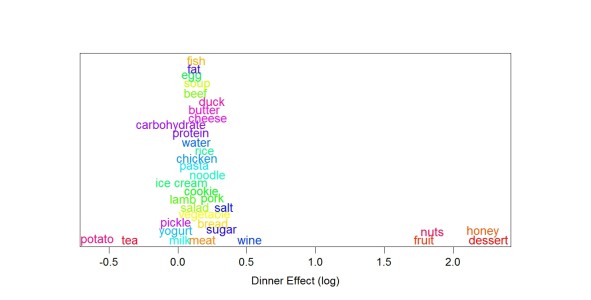I have blogged many times that bedtime honey improves sleep. I learned this from Stuart King, an Australian musician. He also pointed out we eat dessert with dinner more than with other meals. which others who have described the honey effect have not said. The dessert observation suggests that other sweets, not just honey, improve sleep. After I repeated the dessert observation, a friend said I of all people should know it isn’t universal. The Chinese don’t eat dessert, she said. Yes, I said, but where I lived in Beijing there seemed to be lots of sweets eaten in the evening, and lots of street vendors selling fruit in the evening.
The honey-sleep connection helped me improve my sleep in other ways. I found my sleep got better if in addition to bedtime honey I ate fruit (e.g., banana) an hour or so before bedtime. My sleep got even better if I ate something sweet, such as Yakult, an hour or so before that. Both observations implied that honey improved sleep because of the sugar. Nowadays I usually eat three sets of sweets: soon after dinner, mid-evening, and bedtime. I sleep very well every single night, better than ever before. These findings make sense if glycogen (stored glucose) is very important for sleep. My way of eating (three sets of sweets slightly spread out) may produce more glycogen at bedtime than similar ways of eating (e.g., eating the same sweets spread throughout the day).
Recently I realized that Stuart’s observation about dinner and dessert made a prediction: the word dessert should be better associated with the word dinner than the words breakfast and lunch. (A lot of talking/writing consists of describing reality.) I used Google to test this prediction. I counted the hits returned when I searched “dessert dinner”, “dessert breakfast”, and “dessert lunch”. The prediction turned out to be true: “dessert dinner” had a lot more hits than the other two combinations, even though breakfast, lunch and dinner are almost equally common.
I checked about forty other food words: Were they more associated with one meal than others? I found several interesting things.
1. It wasn’t just dessert. Honey and fruit were associated with dinner more than breakfast or lunch. The size of the association was very similar in the three cases. For almost all other food words I tested there was little or no association.

Here are examples of little or no association.

2. There were some surprising associations, shown here.

No surprise that tea is associated with breakfast but why is potato associated with lunch? French fries? Why is nuts associated with dinner? Do nuts contain something that improves sleep?
For each food I computed a “dinner effect” meaning the log(dinner count) minus the average of log(breakfast count) and log(lunch count). Here is a kind of histogram of those values.

The outlier status of nuts, fruit, honey and dessert is clear.
These findings support (a) the original idea (because the original idea led to them), (b) the importance of the original idea (because the association is so clear) and (c) use of Google to learn what people do. Word associations are influenced by many things, no doubt; these results suggest actual behavior is a strong influence. Use of Google to study behavior is free, public, fast, and convenient.
I was surprised the results were so clear. I suspect the explanation is that sweets taste better closer to bedtime. Dessert, honey and fruit differ in many ways; the similarity of size of association suggests that the association is due to what they share (sugar).
I hereby give you permission to eat dessert with dinner.



